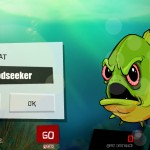

The more "news factoids" you digest, the less of the big picture you will understand. The important stories are non-stories: slow, powerful movements that develop below journalists' radar but have a transforming effect. Will accumulating facts help you understand the world? Sadly, no. News items are bubbles popping on the surface of a deeper world. The less news you consume, the bigger the advantage you have. In reality, news consumption is a competitive disadvantage. We get anxious when we're cut off from the flow of news. Media organisations want you to believe that news offers you some sort of a competitive advantage. The relevant versus the new is the fundamental battle of the current age. It's much easier to recognise what's new.

But people find it very difficult to recognise what's relevant. The point is: the consumption of news is irrelevant to you. Out of the approximately 10,000 news stories you have read in the last 12 months, name one that – because you consumed it – allowed you to make a better decision about a serious matter affecting your life, your career or your business. The only solution: cut yourself off from news consumption entirely. Bankers and economists – who have powerful incentives to compensate for news-borne hazards – have shown that they cannot. If you think you can compensate with the strength of your own inner contemplation, you are wrong.

Watching an airplane crash on television is going to change your attitude toward that risk, regardless of its real probability. We are not rational enough to be exposed to the press. The collapse of Lehman Brothers is overrated. News leads us to walk around with the completely wrong risk map in our heads. But the car is flashy, it's dramatic, it's a person (non-abstract), and it's news that's cheap to produce. That's the underlying risk that has been lurking, and could lurk in other bridges. What's relevant? The structural stability of the bridge. How he experienced the crash (if he survived). What does the news media focus on? The car. A car drives over a bridge, and the bridge collapses. Take the following event (borrowed from Nassim Taleb). We are beginning to recognise how toxic news can be. Today, we have reached the same point in relation to information that we faced 20 years ago in regard to food. Unlike reading books and long magazine articles (which require thinking), we can swallow limitless quantities of news flashes, which are bright-coloured candies for the mind. That's why we experience almost no saturation. The media feeds us small bites of trivial matter, tidbits that don't really concern our lives and don't require thinking. But most of us do not yet understand that news is to the mind what sugar is to the body. I n the past few decades, the fortunate among us have recognised the hazards of living with an overabundance of food (obesity, diabetes) and have started to change our diets.


 0 kommentar(er)
0 kommentar(er)
